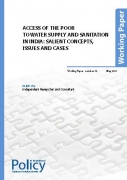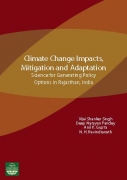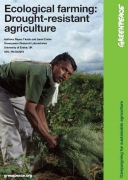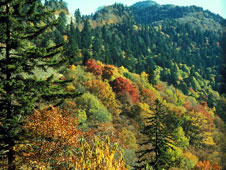/regions/political
Political
Invitation to Nominate 2011 Stockholm Industry Water Award
Posted on 21 Dec, 2010 04:58 PMContent and Image Courtesy: Stockholm Industry Water Award (SIWA)
The Stockholm International Water Institute (SIWI) is a policy institute whose diverse Stockholm-based, internationally-oriented programmes and activities contribute to finding sustainable solutions to the world’s escalating water crisis. SIWI manages projects, synthesises research and publishes findings and recommendations on current and future water, environment, governance and human development issues.
Aquatech India 2011, Amsterdam RAI, Mumbai
Posted on 21 Dec, 2010 03:48 PMOrganizer: Amsterdam RAI
Venue: Bombay Exhibition Centre in Mumbai, India
Description:
Aquatech India 2011 exhibition and conference will showcase a wide spectrum of latest technologies and developments in the field of water and wastewater management. This tradeshow will provide manufacturers and suppliers a secure, recognized and reliable means/approach to enter the water industry.
National Spatial Data Infrastructure (NSDI) 10, FICCI, New Delhi
Posted on 21 Dec, 2010 01:12 PMNational Spatial Data Infrastructure (NSDI) 10
Theme: "National Geospatial Eco-system – The Road Ahead"
7th International India Development Coalition of America (IDCA) Conference , Gurgaon
Posted on 21 Dec, 2010 12:09 PM7th International IDCA Conference in India
Theme: "Working Together to Eradicate Poverty and Mitigate Climate Change"
Action Beyond Dialogue, The Young Changemakers Conclave, 7th Jan 2011, New Delhi
Posted on 21 Dec, 2010 10:44 AMThe Young Changemakers Conclave
Theme: 'Action: Beyond Dialogue'
Organizer: The Young Changemakers Conclave
Topics:
- Human Rights
- Educational Opportunity for all
- Poverty & Hunger
- Environmental Sustainability
- Intercultural Dialogue
- Water: Harvestation & Conservation
Effluent treatment facilities across Golden Corridor does not conform to GPCB norms – A press release by Paryavaran Suraksha Samiti
Posted on 20 Dec, 2010 10:39 PMContent Courtesy: Radical Socialist
Author: Paryavaran Suraksha Samiti
In this press release dated 4th June 2010, the Paryavaran Suraksha Samiti expresses concern that the effluent treatment facilities across the Golden Corridor do not conform to the Gujarat State Pollution Control Board (GPCB) and demands that effluent discharge at Tadgam Sarigam Pipeline, from FETP, Ankleshwar, ECP, Vadodara and CETPs of Ahmedabad be stopped.
Access of the poor to water supply and sanitation in India - Salient concepts, issues and cases by the International Policy Centre for Inclusive Growth
Posted on 20 Dec, 2010 10:04 PM This paper by the International Policy Centre for Inclusive Growth deals with access of the poor to water supply and sanitation in India. It argues that economic, technical, institutional as well as social factors constrain access to safe drinking water and proper sanitation in India for both the urban and rural poor, and that coverage figures do not reflect this restricted access. It finds that, increasingly, communities are being required to manage their own water and sanitation schemes, not just in rural areas but in urban ones as well.
This paper by the International Policy Centre for Inclusive Growth deals with access of the poor to water supply and sanitation in India. It argues that economic, technical, institutional as well as social factors constrain access to safe drinking water and proper sanitation in India for both the urban and rural poor, and that coverage figures do not reflect this restricted access. It finds that, increasingly, communities are being required to manage their own water and sanitation schemes, not just in rural areas but in urban ones as well.
The paper deals with domestic water supply and sanitation and presents a historical overview of the phenomenon in rural and urban India. This is followed by a critique of available figures for coverage which, it is contended, seem exaggerated because they do not account for the several constraints to access. It addresses the specific institutional problems faced in the public sector delivery of these two utilities in India apart from dealing with the parallel yet thus far limited presence of the private sector in these twin arenas.
Climate change impacts, mitigation and adaptation - Science for generating policy options in Rajasthan
Posted on 20 Dec, 2010 09:14 PM This paper by Rajasthan Pollution Control Board on climate change impacts in the context of Rajasthan seeks to address the issue of need of the society for robust knowledge to pursue strategies for mitigation as well as adaptation in order to address the challenges associated with global warming and climate change.
This paper by Rajasthan Pollution Control Board on climate change impacts in the context of Rajasthan seeks to address the issue of need of the society for robust knowledge to pursue strategies for mitigation as well as adaptation in order to address the challenges associated with global warming and climate change.
Accordingly, here a brief review of the available literature and an annotated bibliography of published research on climate change impacts, mitigation and adaptation in order to facilitate the identification of policy options in Rajasthan is provided.
Also included is the literature on how human societies contribute to environmental change and how, in turn, become vulnerable to these changes. It also explores the available knowledge on how likely ecosystem goods and services are impacted to climatic oscillations (environmental sensitivity) and the ability of rural communities to cope (social resilience) with those changes.
Ecological farming: Drought resistant agriculture – A paper by Greenpeace
Posted on 20 Dec, 2010 08:09 PM This paper by Greenpeace on ecological farming illustrates proven, modern farming approaches that help cope with drought. It elaborates on the drought-resistant crop varieties and calls for policy makers to increase funds for research on the system.
This paper by Greenpeace on ecological farming illustrates proven, modern farming approaches that help cope with drought. It elaborates on the drought-resistant crop varieties and calls for policy makers to increase funds for research on the system.
Human-induced climate change is resulting in less and more erratic rainfall, especially in regions where food security is very low. The poor in rural and dry areas will suffer the most and will require cheap and accessible strategies to adapt to erratic weather. This adaptation will need to take into account not only less water and droughts, but also the increased chance of extreme events like floods.
Biodiversity and a healthy soil are central to ecological approaches to making farming more drought-resistant and more resilient to extreme events. Practices that make soils better able to hold soil moisture and reduce erosion and that increase biodiversity in the system help in making farm production and income more resilient and stable.
Greener climate prediction by NASA shows plants slow warming
Posted on 20 Dec, 2010 06:01 PMArticle and Image Courtesy: NASA
A new NASA computer modeling effort has found that additional growth of plants and trees in a world with doubled atmospheric carbon dioxide levels would create a new negative feedback – a cooling effect – in the Earth's climate system that could work to reduce future global warming.
 A new NASA modeling effort found that in a doubled-carbon dioxide world plant growth could lessen global warming by about 0.3 degrees C globally. The same model found that the world would warm by 1.94 degrees C without this cooling feedback factored in. Image: Great Smoky Mountains National Park; Credit: National Park Service
A new NASA modeling effort found that in a doubled-carbon dioxide world plant growth could lessen global warming by about 0.3 degrees C globally. The same model found that the world would warm by 1.94 degrees C without this cooling feedback factored in. Image: Great Smoky Mountains National Park; Credit: National Park Service